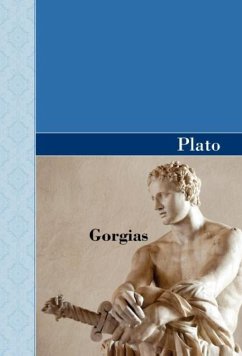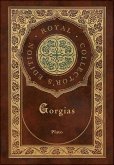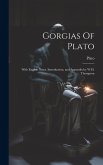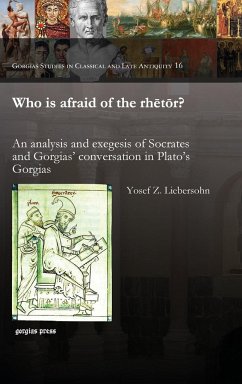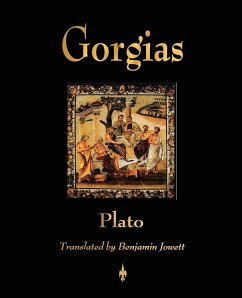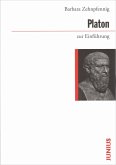"Plato's Gorgias takes on the immortal themes of power, persuasion, and virtue. In ancient Athens, tremendous power lay in the ability to persuade, the art known as rhetoric. In this dialogue, Plato's teacher Socrates visits Gorgias, an eminent rhetorician, to question him about his profession and what is ultimately achieved by it. The discussion then turns to power and where it truly lies, and ends with a passionate argument by Socrates in favor of justice as the ultimate social virtue. Rooted in the classical worldview, Gorgias is a work which nevertheless remains deeply resonant today.
Hinweis: Dieser Artikel kann nur an eine deutsche Lieferadresse ausgeliefert werden.
Hinweis: Dieser Artikel kann nur an eine deutsche Lieferadresse ausgeliefert werden.

